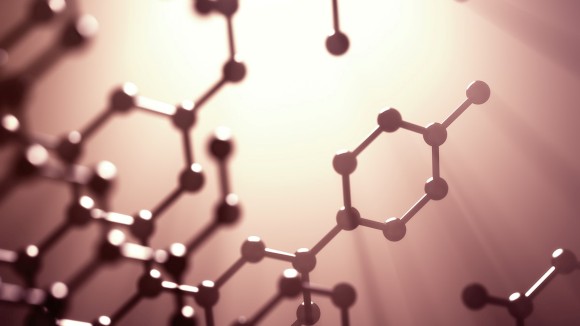David Amabilino, PhD, Institut de Ciència de Materials de Barcelona (ICMAB-CSIC), Spain
 David Amabilino is a Research Professor and Director at the Barcelona Materials Science Institute (ICMAB-CSIC). His interdisciplinary research interests are centered mainly on organic materials that interact with light to give some kind of function, be it dynamic or optoelectronic. He hopes that these materials will contribute to sustainable solutions for generating and storing energy. The research activity in his group spans the synthesis of new materials to their structural characterisation and dynamic studies using state-of-the-art microscopy techniques.
David Amabilino is a Research Professor and Director at the Barcelona Materials Science Institute (ICMAB-CSIC). His interdisciplinary research interests are centered mainly on organic materials that interact with light to give some kind of function, be it dynamic or optoelectronic. He hopes that these materials will contribute to sustainable solutions for generating and storing energy. The research activity in his group spans the synthesis of new materials to their structural characterisation and dynamic studies using state-of-the-art microscopy techniques.
Céline Calvino, PhD, LivMatS, University of Freiburg, Germany
 Céline Calvino is a Junior Group Leader and principal investigator at the University of Freiburg since 2021. She completed her PhD in polymer chemistry and materials at the Adolphe Merkle Institute. Her doctoral research centered on designing chromogenic systems based on supramolecular interactions and incorporating them into polymeric materials to create novel, functional mechanoresponsive materials. With the support of a SNFS Mobility Fellowship, Céline embarked on her postdoctoral journey at the Pritzker School of Molecular Engineering, University of Chicago. Her research there focused on using dynamic covalent chemistry to functionalize cellulose nanocrystals and on developing appropriate engineering melt processes for the preparation of mechanically reinforced and sustainable nanocomposite materials. Céline’s group currently centers on the design of stimuli-responsive systems for the development of renewable polymer materials.
Céline Calvino is a Junior Group Leader and principal investigator at the University of Freiburg since 2021. She completed her PhD in polymer chemistry and materials at the Adolphe Merkle Institute. Her doctoral research centered on designing chromogenic systems based on supramolecular interactions and incorporating them into polymeric materials to create novel, functional mechanoresponsive materials. With the support of a SNFS Mobility Fellowship, Céline embarked on her postdoctoral journey at the Pritzker School of Molecular Engineering, University of Chicago. Her research there focused on using dynamic covalent chemistry to functionalize cellulose nanocrystals and on developing appropriate engineering melt processes for the preparation of mechanically reinforced and sustainable nanocomposite materials. Céline’s group currently centers on the design of stimuli-responsive systems for the development of renewable polymer materials.
Ximin He, PhD, University of California, Los Angeles, United States
 Ximin He is an Associate Professor of Materials Science and Engineering at the University of California, Los Angeles (UCLA) and Faculty of California Nanosystems Institute (CNSI). Dr. He was a postdoctoral research fellow in the School of Engineering and Applied Science and the Wyss Institute of Bioinspired Engineering at Harvard University. Dr. He received her PhD in Chemistry at Melville Laboratory for Polymer Synthesis from the University of Cambridge. Dr. He’s research focuses on bioinspired soft materials, stimuli-responsive polymers, and structural polymers and their physical, mechanical, electrical, and photothermal properties with broad applications in biomedicine, energy, environment, and robotics. Her research on bioinspired tough hydrogels, phototropic, phototaxic, homeostatic, and anti-icing materials has garnered a number of regional and international awards and was featured in >300 international news outlets.
Ximin He is an Associate Professor of Materials Science and Engineering at the University of California, Los Angeles (UCLA) and Faculty of California Nanosystems Institute (CNSI). Dr. He was a postdoctoral research fellow in the School of Engineering and Applied Science and the Wyss Institute of Bioinspired Engineering at Harvard University. Dr. He received her PhD in Chemistry at Melville Laboratory for Polymer Synthesis from the University of Cambridge. Dr. He’s research focuses on bioinspired soft materials, stimuli-responsive polymers, and structural polymers and their physical, mechanical, electrical, and photothermal properties with broad applications in biomedicine, energy, environment, and robotics. Her research on bioinspired tough hydrogels, phototropic, phototaxic, homeostatic, and anti-icing materials has garnered a number of regional and international awards and was featured in >300 international news outlets.
Xiang Ma, PhD, East China University of Science and Technology, China
 Xiang Ma is a full Professor at East China University of Science & Technology (ECUST) since 2016. Dr. Ma worked as a Research Associate at Liquid Crystal Institute at Kent State University (Ohio, US) from 2011 to 2012 and as a Visiting Professor at the University of California, Berkeley in 2017. His current research interests mainly focus on functional supramolecular machines, switches, stimuli-responsive supramolecular polymers, and organic photo-electro material based on dyes. Dr. Ma won the National Science Fund for Distinguished Youth Scholars of China in 2021. He is the Fellow of Royal Society of Chemistry (FRSC).
Xiang Ma is a full Professor at East China University of Science & Technology (ECUST) since 2016. Dr. Ma worked as a Research Associate at Liquid Crystal Institute at Kent State University (Ohio, US) from 2011 to 2012 and as a Visiting Professor at the University of California, Berkeley in 2017. His current research interests mainly focus on functional supramolecular machines, switches, stimuli-responsive supramolecular polymers, and organic photo-electro material based on dyes. Dr. Ma won the National Science Fund for Distinguished Youth Scholars of China in 2021. He is the Fellow of Royal Society of Chemistry (FRSC).
Zhenjie Zhang, PhD, Nankai University, China
 Zhenjie Zhang is a full Professor of Inorganic Chemistry at Nankai University. He earned his BSc and MS degrees from Nankai University. In 2014, he obtained his PhD degree from the University of South Florida in the field of metal–organic frameworks. He did his postdoctoral research with Professor Seth M. Cohen at the University of California, San Diego (2014–2016) before embarking on his independent career as a full Professor. The Zhang group is currently focusing on developing new crystalline materials (e.g. metal–organic frameworks, covalent organic frameworks, and metal–organic polyhedra) for value-added product purification (e.g. light hydrocarbon separation), membrane fabrication, and fabricating smart actuators or robots.
Zhenjie Zhang is a full Professor of Inorganic Chemistry at Nankai University. He earned his BSc and MS degrees from Nankai University. In 2014, he obtained his PhD degree from the University of South Florida in the field of metal–organic frameworks. He did his postdoctoral research with Professor Seth M. Cohen at the University of California, San Diego (2014–2016) before embarking on his independent career as a full Professor. The Zhang group is currently focusing on developing new crystalline materials (e.g. metal–organic frameworks, covalent organic frameworks, and metal–organic polyhedra) for value-added product purification (e.g. light hydrocarbon separation), membrane fabrication, and fabricating smart actuators or robots.

